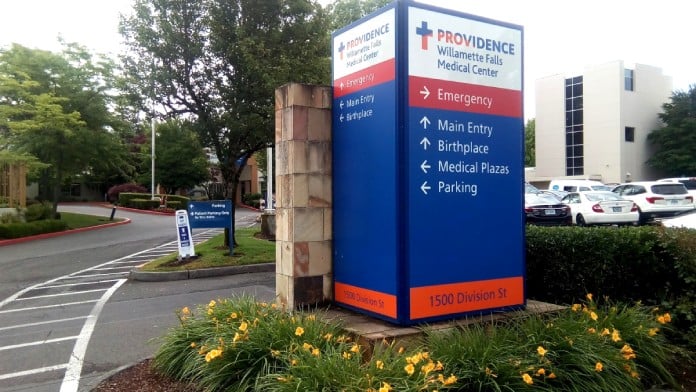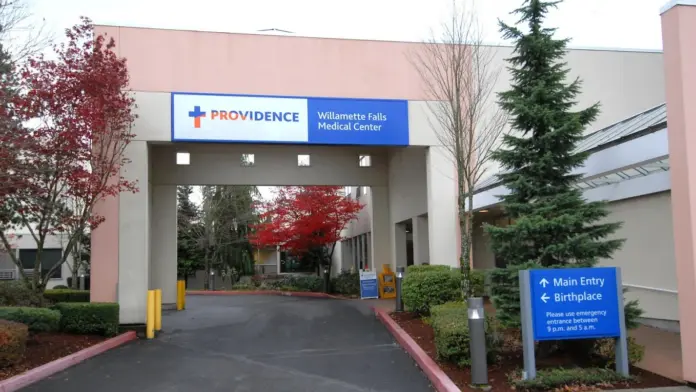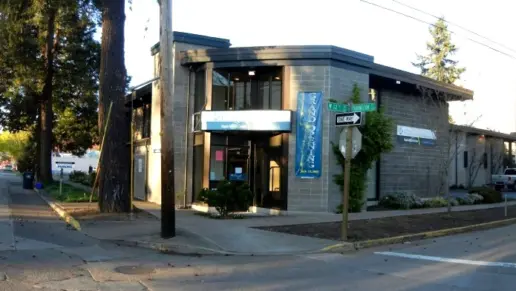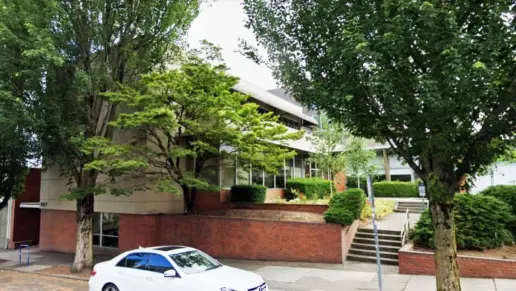About Providence Willamette Falls Medical Center
Providence Willamette Falls Medical Center, located in Oregon City, Oregon, offers comprehensive healthcare services for the entire family. They provide specialized behavioral healthcare for both adolescents and children.
They’ve been taking care of the Oregon City community since 1954. Oregon City, with its unique history as the first capital of the Oregon Territory, is the perfect backdrop for a hospital that’s grown alongside it. There’s both that small-town feel and the convenience of being close to Portland.
Here’s something you’ll probably appreciate: This hospital is Joint Commission accredited, which means they’re held to some pretty high standards for patient care and safety.
Specialized Support for Children and Teens
At the Willamette Falls location, they have a few options for kids four to 17 years of age who need mental health support. Their outpatient clinic provides a mix of therapy, medication management, and group treatment. They also offer inpatient mental healthcare for adolescents 12-17 years of age.
For teens who need a bit more help, there’s the Pathways Program. It’s a more intensive, group based treatment that runs from 10 am to 3 pm, Monday through Friday. Teens will learn skills to cope with things like anxiety, depression, self-harm, and emotional dysregulation, which often go hand-in-hand with substance abuse.
Addiction Treatment Resources and Referrals
While they may not offer direct substance abuse treatment, they’re part of a larger healthcare network that can help. They’ll connect you with addiction programs, whether you need detox, inpatient care, or outpatient therapy.
And because so many seniors take multiple medications, they help older adults prevent medication dependency. The focus is on helping them age safely and avoid the risk of medication misuse.
Financial Support and Payment Options
Money should not prevent you from getting the care you need. Their financial assistance offers free or low-cost care for uninsured or underinsured patients. They can also help you apply for the Oregon Health Plan.
With their comprehensive services and a solid network of referrals, Providence Willamette Falls could be a valuable starting point for anyone looking for support for substance use issues.
Rehab Score
Gallery


Location
Other Forms of Payment
Private insurance refers to any kind of healthcare coverage that isn't from the state or federal government. This includes individual and family plans offered by an employer or purchased from the Insurance Marketplace. Every plan will have different requirements and out of pocket costs so be sure to get the full details before you start treatment.
Self-pay involves paying for treatment out of your own pocket. You can use savings or credit, get a personal loan, or receive help from family and friends to fund your treatment. If you don't have insurance or your insurance plan doesn't cover a specific program, self-pay can help ensure you still get the care you need.
Financial aid can take many forms. Centers may have grants or scholarships available to clients who meet eligibility requirements. Programs that receive SAMHSA grants may have financial aid available for those who need treatment as well. Grants and scholarships can help you pai for treatment without having to repay.
Medicare is a federal program that provides health insurance for those 65 and older. It also serves people under 65 with chronic and disabling health challenges. To use Medicare for addiction treatment you need to find a program that accepts Medicare and is in network with your plan. Out of pocket costs and preauthorization requirements vary, so always check with your provider.
Medicaid is a state based program that helps lower-income individuals and families pay for healthcare. Medicaid covers addiction treatment so those enrolled can use their coverage to pay for rehab. When a program accepts Medicaid the client often pays very little or nothing out of their own pocket.
Military members, veterans, and eligible dependents have access to specific insurance programs that help them get the care they need. TRICARE and VA insurance can help you access low cost or no cost addiction and mental health treatment. Programs that accept military insurance often have targeted treatment focused on the unique challenges military members, veterans, and their families face.
Addiction Treatments
Levels of Care
Treatments
Mental health rehabs focus on helping individuals recover from mental illnesses like bipolar disorder, clinical depression, anxiety disorders, schizophrenia, and more. Mental health professionals at these facilities are trained to understand and treat mental health issues, both in individual and group settings.
Programs




Clinical Services
Cognitive Behavioral Therapy (CBT) is a therapy modality that focuses on the relationship between one's thoughts, feelings, and behaviors. It is used to establish and allow for healthy responses to thoughts and feelings (instead of unhealthy responses, like using drugs or alcohol). CBT has been proven effective for recovering addicts of all kinds, and is used to strengthen a patient's own self-awareness and ability to self-regulate. CBT allows individuals to monitor their own emotional state, become more adept at communicating with others, and manage stress without needing to engage in substance abuse.
Dialectical Behavior Therapy (DBT) is a modified form of Cognitive Behavioral Therapy (CBT), a treatment designed to help people understand and ultimately affect the relationship between their thoughts, feelings, and behaviors. DBT is often used for individuals who struggle with self-harm behaviors, such as self-mutilation (cutting) and suicidal thoughts, urges, or attempts. It has been proven clinically effective for those who struggle with out-of-control emotions and mental health illnesses like Borderline Personality Disorder.
Group therapy is any therapeutic work that happens in a group (not one-on-one). There are a number of different group therapy modalities, including support groups, experiential therapy, psycho-education, and more. Group therapy involves treatment as well as processing interaction between group members.
In individual therapy, a patient meets one-on-one with a trained psychologist or counselor. Therapy is a pivotal part of effective substance abuse treatment, as it often covers root causes of addiction, including challenges faced by the patient in their social, family, and work/school life.
Viewed as a method of communication rather than an intervention, motivational interviewing is an evidence based approach to rehab treatment in Oregon. The principles of this method have a common sense appeal and are readily applied to many therapeutic programs. Core strategies include acceptance, listening, and summarizing.
Trauma therapy addresses traumatic incidents from a client's past that are likely affecting their present-day experience. Trauma is often one of the primary triggers and potential causes of addiction, and can stem from child sexual abuse, domestic violence, having a parent with a mental illness, losing one or both parents at a young age, teenage or adult sexual assault, or any number of other factors. The purpose of trauma therapy is to allow a patient to process trauma and move through and past it, with the help of trained and compassionate mental health professionals.
For couples in Oregon, couples therapy can provide insight into the problems in their relationship. The therapist guides the couple to a greater understanding of themselves and each other. They work individually and together to change how they interact and react to challenges in the relationship.
Research clearly demonstrates that recovery is far more successful and sustainable when loved ones like family members participate in rehab and substance abuse treatment. Genetic factors may be at play when it comes to drug and alcohol addiction, as well as mental health issues. Family dynamics often play a critical role in addiction triggers, and if properly educated, family members can be a strong source of support when it comes to rehabilitation.
Amenities
-
Residential Setting
-
Private Rooms
Contact Information
1500 Division St
2nd floor
Oregon City, OR 97045


